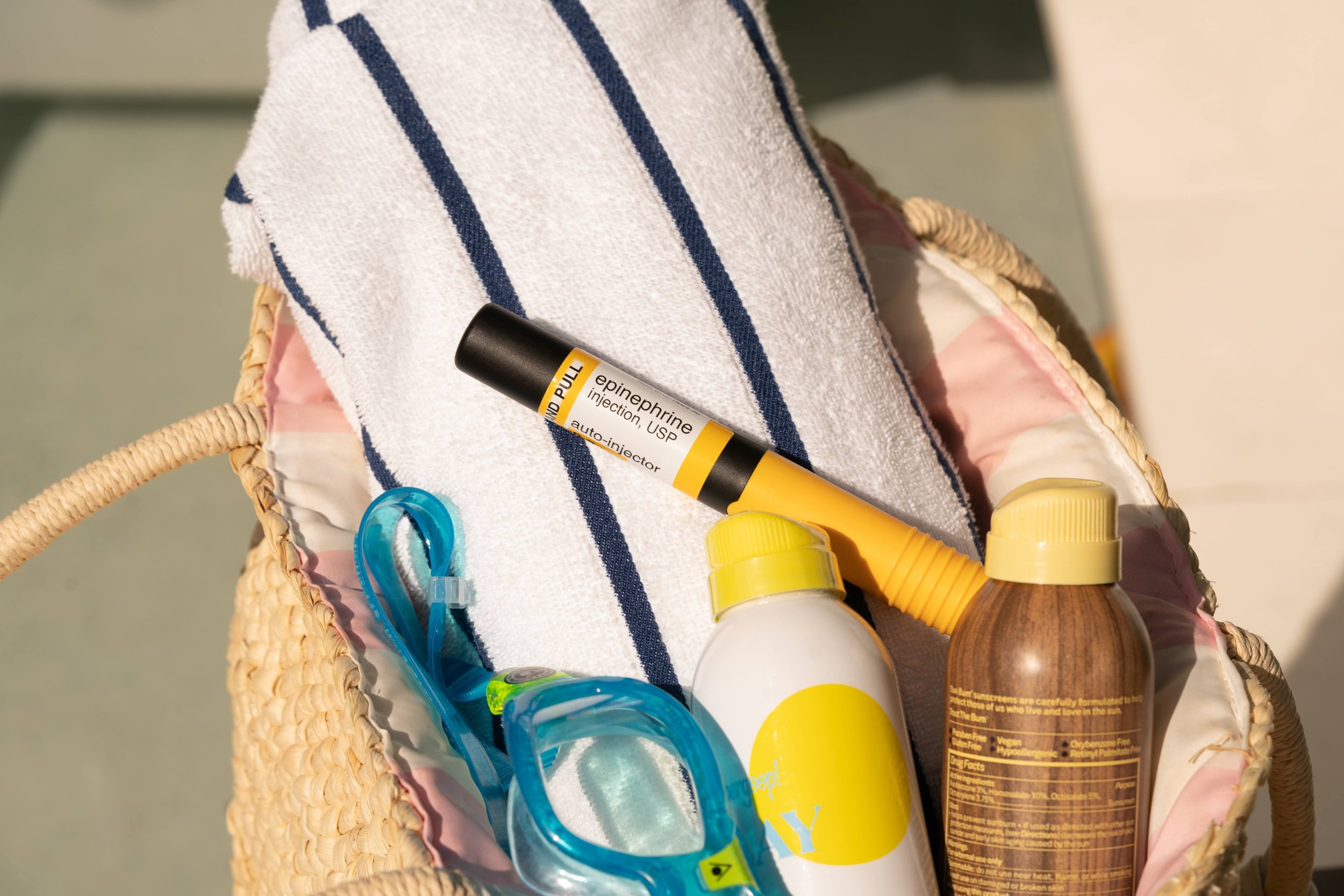5 Things to Know About Food Allergies in the Summer
AllergyHealth for Allergenis
Summer is here! The weather is inviting, the outdoor calls, the kids are home from school – it’s time to get out and get active. Nothing should stop you from enjoying all the fun and adventure that summer brings – not even food allergies! Pay attention to these summer tips to help you stay safe while you soak up the sun!
1. Keep your epinephrine auto-injectors cool.
You’ll want to take your epinephrine auto-injectors everywhere with you – even in summertime. That means bringing a set along to the beach or pool, on hikes and picnics, to concerts and barbeques, and everywhere else that summer fun takes you. But did you know that epinephrine must be kept at room temperature – ideally between 68 and 77 degrees Fahrenheit? Epinephrine should not be exposed to extreme temperatures for long periods of time otherwise the medication may become less effective or the auto-injector device may fail to deliver the dose. Rather than leave them in your hot car or plop them in the sand next to your beach chair, consider bringing along a small cooler bag with an ice pack. Or place them on top of your food or drinks inside your cooler where is cool but not cold.
2. Excessive heat is a cofactor.
Getting overheated can be a regular occurrence if you exercise outside during the hot summer months. Stay active but remember that raising the body’s internal temperature can speed up the severity of reactions. This is known as a cofactor. The body’s core temperature can also be raised with a fever, a hot shower, or excessive outside temperatures. Because of this, it’s best to exercise before you eat – especially if you’ve tried a new restaurant, a new dish, or a new brand of food.
3. Stay hydrated.
It’s critically important to stay hydrated if you have food allergies. Just like excessive heat, being dehydrated can speed up how quickly an allergic reaction escalates and can make those reactions more serious. Pay extra attention to your body and drink more during these hot months.
4. Stay vigilant when you travel.
Vacations should be a time to unwind and just relax. To truly travel carefree with food allergies, you need to know you’re eating safely. Do a little prep work by looking at local restaurants, calling ahead to discuss menu items and points of cross-contact in their kitchens. Call your hotel to find out if they can empty the mini-fridge so you have room to leave a carton of dairy-free milk, a nut-free dessert, or some safe snacks so you always have something you know is allergy-friendly at your disposal.
5. Renew your epinephrine prescriptions.
Renew your prescriptions for epinephrine auto-injectors ahead of the back-to-school rush. Now is the time to check the expiration dates on the sets you have, schedule check-ups with your allergist or healthcare provider, and evaluate how many sets of auto-injectors you’ll need to update for home, school and anywhere else you like to keep them handy. Be sure to discuss which auto-injector is the right one for you with your healthcare provider. They all contain the same life-saving medication and are all effective at stopping anaphylaxis, but some fit better in pockets of clothing, some speak instructions out loud, and some cost more or less than others. The best one for you is the one that is cost effective, easy for you to use and the one you will remember to carry.

